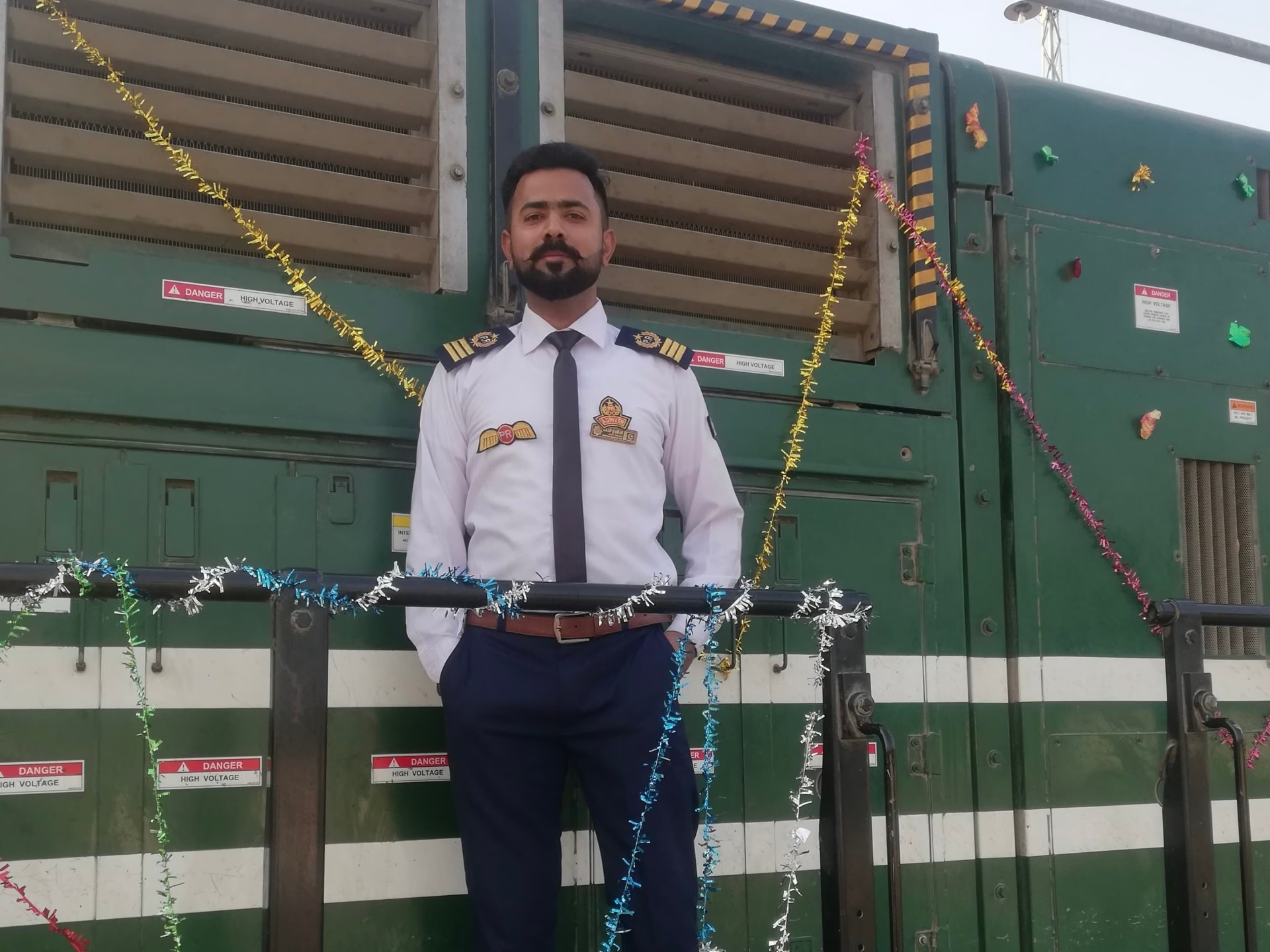The young assistant train driver signed onto the duty form and proceeded to check over the engine he would be attatching to the Peshawar-bound Jaffar Express for its 1,600km (994-mile) journey from Pakistan’s Quetta in the southwest to Peshawar in the northwestern province of Khyber Pakhtunkhwa.
The day started routinely. The train set out, carrying Qamar, the main driver Amjad Yasin, and over 400 passengers — as it always did.
Four stations into their journey, through the rugged Bolan mountains, a powerful explosion rocked the locomotive and those on board. It was 12:55pm (07:55 GMT), and Qamar knew intuitively they were under attack, remembering previous assaults on the Jaffar Express, including a January 2023 bombing that had injured several passengers and overturned three carriages. “The driver [Yasin] applied the emergency brake,” Qamar remembers.
The Jaffar Express soon became international news as the Balochistan Liberation Army (BLA), an armed group, claimed the attack on the passengers they had taken hostage. A deadly standoff with Pakistan’s armed forces ensued, which resulted in over 300 passengers’ rescue, the deaths of 33 BLA fighters (including suicide bombers), 21 army soldiers, and 10 civilians, according to Inter-Services Public Relations (ISPR), Pakistan’s military’s public relations wing.
Post-rescue, memories of the ordeal still haunt Saad Qamar.
![Saad at home after being rescued by the Pakistani military, playing with a pet bird [Saadullah Akhter/ Al Jazeera]](https://www.aljazeera.com/wp-content/uploads/2025/04/P1880218-1743655980.jpg?w=770&resize=770%2C513)
Escape from the Reigns of Danger
After the train stopped, Qamar placed wooden pieces under the wheels to prevent it from moving. As intense firing erupted, bullets striking the wheels close to him, his driver urged him inside the engine for safety, and they locked the doors of the locomotive.
Attackers targeted the train with gunfire and RPG rockets, offboarding passengers and separating them by ethnicity. Qamar used the train’s communication system to alert a nearby station but lost contact when the driver shut down the engine to avoid a fire hazard due to leaking diesel.
![Saad and his father, a former Pakistan railways driver, in front of their home – Quetta, Pakistan [Saadullah Akhter/Al Jazeera]](https://www.aljazeera.com/wp-content/uploads/2025/04/P1880230-1743656088.jpg?w=770&resize=770%2C513)
The Certain Fear of Death
Qamar, the eldest of four siblings, was rescued on March 12 at 4:30 pm by the Special Services Group (SSG) commandos and brought to safety in Quetta. He had spent nearly 28 hours at the attack site, mostly inside the engine.
During the incident, Qamar, who was fasting for Ramadan, sustained himself with water given by his mother. The family feared the worst, with father Ghulam Sabir, also a retired train driver, hearing rumors of his son’s demise. Confirmation of Qamar’s safety came the following day, during the iftar meal, amid the chaotic rumors and uncertainty.
![Saad and his father, also a former Pakistan railways driver, inside their home – Quetta, Pakistan [Saadullah Akhter/Al Jazeera]](https://www.aljazeera.com/wp-content/uploads/2025/04/P1880212-1743656177.jpg?w=770&resize=770%2C513)
Duty Above Fear
Pakistan’s railway system, dating back to British colonial times, is critical for military logistics and passenger transport. Yet, it also makes trains a vulnerable target for armed groups.
The BLA, responsible for the hijack, is one of the Baloch separatist groups who have previously targeted trains and stations. Qamar’s mother wanted him to quit, but his father urged him to remain committed to his role, encouraging bravery in the face of danger.
On March 28, train services to Balochistan resumed. Qamar is set to return to work on April 3, once again donning the uniform he trusts.







